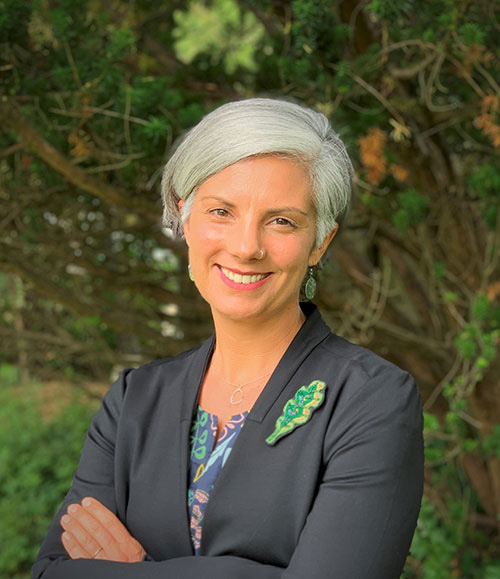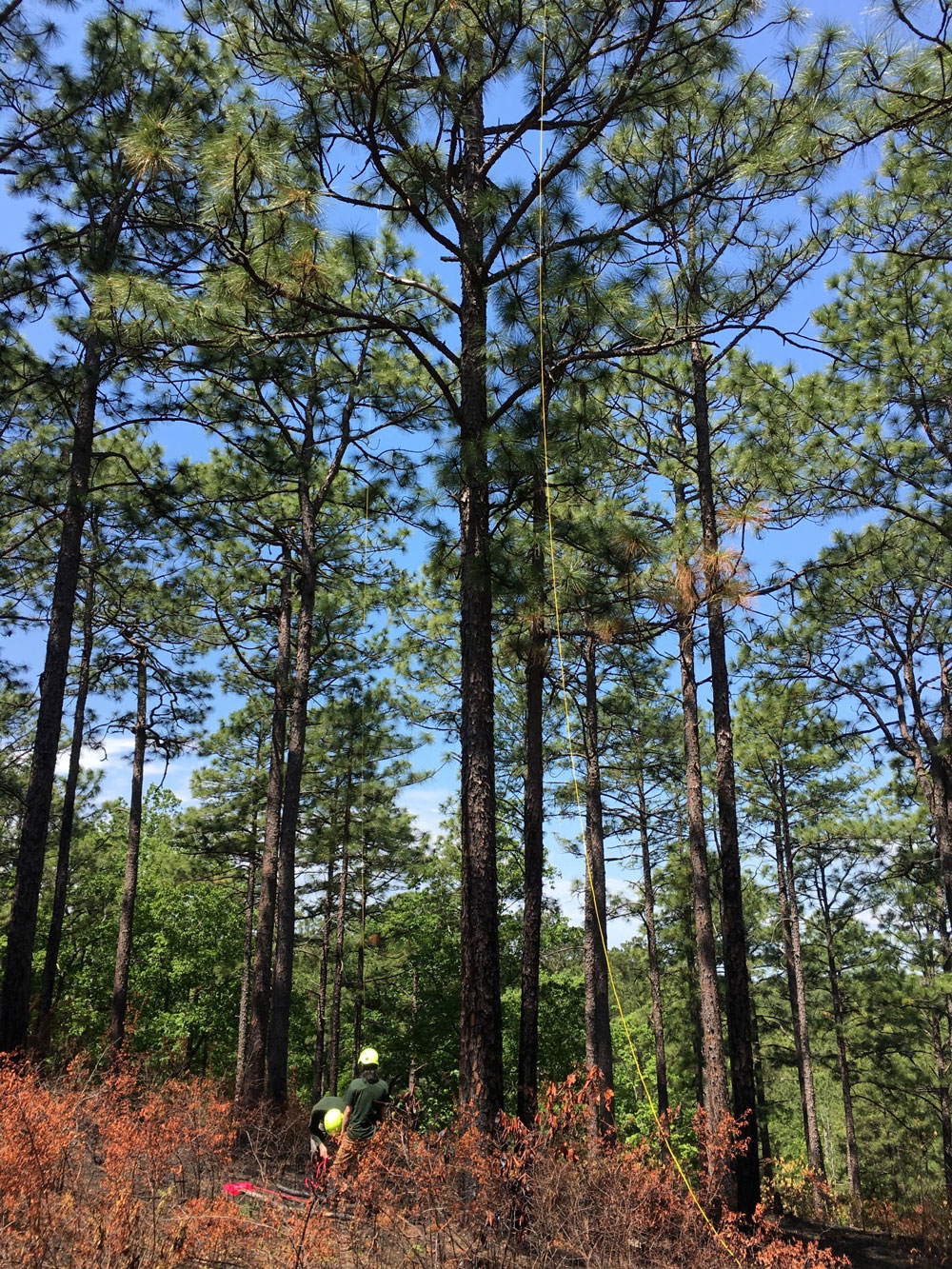MSU Geographer Secures $1.1M NSF CAREER Award to Map Forest Carbon Uptake
June 21, 2021 - Diane Huhn
 When we boil climate change down to its root causes, we understand that as more carbon dioxide is released than can be absorbed by Earth's land and water, that extra carbon dioxide builds up in the atmosphere, absorbing energy. In turn, this energy warms the atmosphere and enables it to hold more water vapor, causing global climate change. And it's no secret that changes in climate and weather impact ecosystems and the people who rely on them. "To understand and predict these impacts, a key first step is for us is to understand how much carbon dioxide the Earth's land and water actually take up," explained Kyla Dahlin, an assistant professor in the Department of Geography, Environment, and Spatial Sciences at Michigan State University. "On land, most carbon dioxide is taken up by plants, but how much uptake has been especially difficult to predict because plants differ in their abilities to absorb carbon and to respond to changes in the environment."
When we boil climate change down to its root causes, we understand that as more carbon dioxide is released than can be absorbed by Earth's land and water, that extra carbon dioxide builds up in the atmosphere, absorbing energy. In turn, this energy warms the atmosphere and enables it to hold more water vapor, causing global climate change. And it's no secret that changes in climate and weather impact ecosystems and the people who rely on them. "To understand and predict these impacts, a key first step is for us is to understand how much carbon dioxide the Earth's land and water actually take up," explained Kyla Dahlin, an assistant professor in the Department of Geography, Environment, and Spatial Sciences at Michigan State University. "On land, most carbon dioxide is taken up by plants, but how much uptake has been especially difficult to predict because plants differ in their abilities to absorb carbon and to respond to changes in the environment."
Under a Faculty Early Career Development (CAREER) Program award of nearly $1.2M from the National Science Foundation (NSF), Dahlin will lead research that takes a new approach to unravel the challenge of measuring carbon uptake, especially at large scales. Combining historical data from satellites, new data from airborne sensors, and computer modeling, they plan to map forest carbon uptake in eastern U.S. forests.

Dahlin earned her Ph.D. in Biology from Stanford in 2012 and joined the MSU Geography faculty in 2015 after completing a postdoctoral fellowship at the National Center for Atmospheric Research in Boulder, Colorado, where she used her remote sensing background to help constrain a land surface model. Her current research aims to better understand and quantify ecosystem processes and disturbance responses by applying emerging technologies, including air- and space-borne remote sensing, spatial statistics, and process-based modeling.
Among the NSF's most prestigious, such CAREER awards support early-career faculty who have the potential to serve as academic role models in research and education and to lead advances in the mission of their department or organization. This award will enable Dahlin to understand how past disturbances influence carbon uptake in forest ecosystems while strengthening her leadership in her field. The award develops the concept of 'disturbance syndromes,' suggesting that patterns of response to disturbances may be similar over time, even among diverse ecosystems. "Our current estimates of carbon uptake by plants are solid at really fine, plant scales and at really coarse, global scales," said Dahlin. "But when we think about landscape and regional scales, where most management decisions are made, we just haven't had the mechanistic understanding of how disturbance, environmental gradients, and plant diversity connect in order to predict the amount of carbon that can be absorbed. This award will help us to close that gap."

Using nearly 40 years of Landsat satellite data and the U.S. National Ecological Observatory Network's Airborne Observation Platform, the project will map these disturbance syndromes across eastern U.S. forests, enabling the creation of a predictive model for carbon uptake. "Another exciting aspect to the award is that we will also be able to integrate education and outreach activities in our work. This will include a field course for graduate students and postdocs, undergraduate-focused teaching modules, digital outreach materials, and public writing that invites students of all ages to learn about macrosystems, or large-scale, ecology," said Dahlin. Through this integration of research, education, and outreach, Dahlin and her team aim to cultivate a more inclusive, diverse, and technically skilled community to better understand ecosystem patterns and processes. "It's a tremendously exciting opportunity to accelerate the pace of innovation in macrosystems ecology and ecogeography."
"We could not be more proud of Kyla for this significant achievement," remarked Alan Arbogast, Chair of the Geography Department. "She has consistently proven her outstanding leadership and innovation within the Department, the College of Social Science, and the discipline as a whole. The passion, talent, and dedication that Kyla brings to her work every day not only benefits our students, faculty, and the entire MSU community, but she is truly empowering opportunities that are creating extraordinary impact for a better world."

